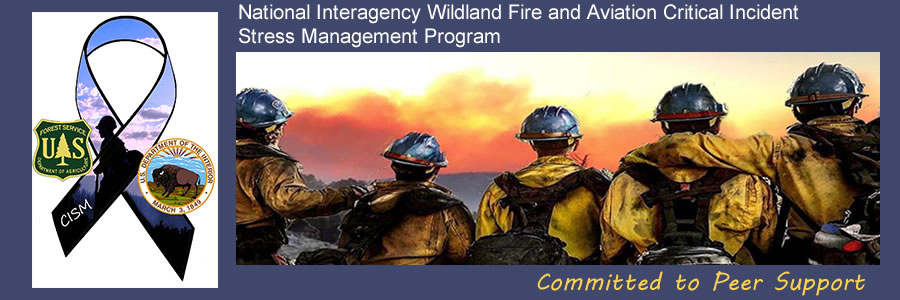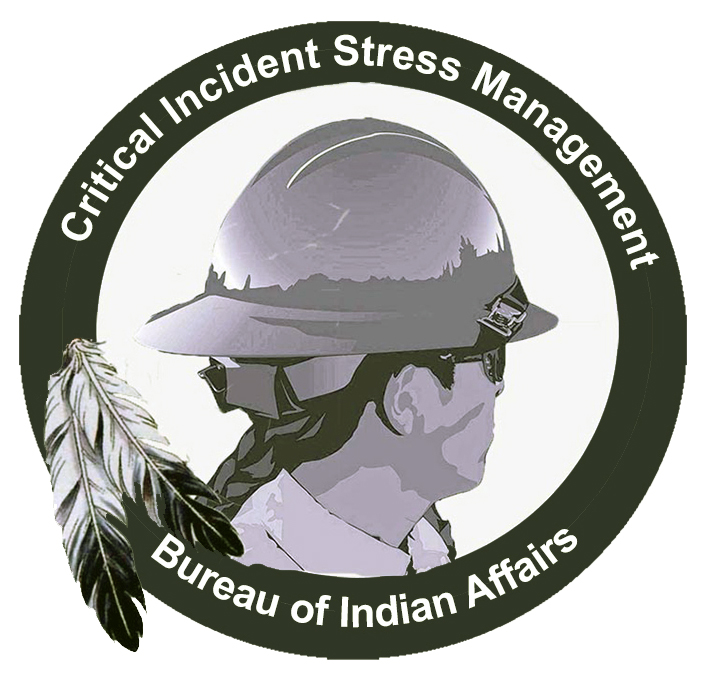
Main Print Heading
Print Subheading
Requesting Crisis Intervention (CISM)
Early psychological intervention is based on recognition of need, not strictly the occurrence of an event. What is appropriate will depend on the event's nature, severity, and duration. The number of those involved, their background and cohesiveness, and their physical and emotional symptoms are crucial considerations.
National Casualty Assistance Program and CISM Coordinators
Knowledge of the sequence of crisis intervention processes and the appropriate use for individuals or groups is crucial to all effective CISM programs. The Agency Administrator or their designee should contact their agency CISM Coordinator to discuss the need for CISM services. Not all requests for CISM are appropriate, and the CISM Coordinator must carefully evaluate the request to determine the most appropriate intervention. They must consider the populations they are assisting and any particular circumstances and assess what post-incident support may be required. BIA CISM Request Guidelines
Fire-Related CISM Requests
Critical Incident Peer Support Groups are mobilized through the normal dispatch channels. It is essential to follow an agency-specific policy regarding requests for CISM. Upon approval, requests for fire-related CISM services such as pre-suppression, suppression, and fire management activities are typically placed through normal dispatch channels to the appropriate Geographic Area Coordination Center.
Non-Fire Related CISM Requests
Bureau of Land Management Policy and Guidance
Bureau of Indian Affairs Policy and Guidance

Timing and Why It Is Important
One risk of crisis intervention is "premature intervention," which may interfere with some victims' natural recovery mechanisms. Crisis intervention processes generally start 48-72 hours after an incident. The latest research indicates that crisis intervention is most effective from 72 hours to 10 days after an incident. Allowing time for affected individuals to disengage operationally and reconnect with family or friends is crucial. Once this occurs, individuals are typically emotionally ready to benefit from peer support. Efforts to provide crisis services must be well-timed, well-measured, and delivered by trained and certified personnel.
Crisis intervention services must complement and augment natural recovery and restorative mechanisms and not interfere with the process (Mitchell, 2000). Early psychological intervention is based on recognition of need, not strictly the occurrence of an event. What is appropriate will depend on the nature, severity, and duration of the event, the number, skills, and cohesiveness of those involved, and the severity of their physical and emotional symptoms.
The First 48 Hours After a Critical Incident
Current research has demonstrated that good management care plays a vital role in preventing, supporting, and improving traumatic stress symptoms. Feeling cared about and supported in the immediate aftermath of a traumatic event is hugely important in the healing and recovery process.
Manager and colleague support is an essential element in the effective recovery of individuals, and the provision of a supportive environment is the responsibility of line managers and managers who have a crucial role in ensuring staff is supported. Read More
Federal Wildland Fire Qualifications Supplement NWCG 310-1
January 1, 2021 the new Federal Wildland Fire Qualifications Supplement went into effect. The Supplement requires training for certification as CISM (Peer Support Group Member) and CISL (Peer Support Group Leader. Peer Support Group members and Peer Support Group Leaders are no longer ordered as THSP. CISM and CISL will now be used when placing a request. See Supplement
Additional Information
International Critical Incident Stress Foundation
National Alliance on Mental Illness
American Telepsychology Association
 » Read More
» Read More
Agency CISM Information
- Bureau of Indian Affairs
- Bureau of Land Management
- U.S. Fish and Wildlife Service
- U.S. Forest Service
- National Park Service
- Southwest Geographic Area
- State Agencies


